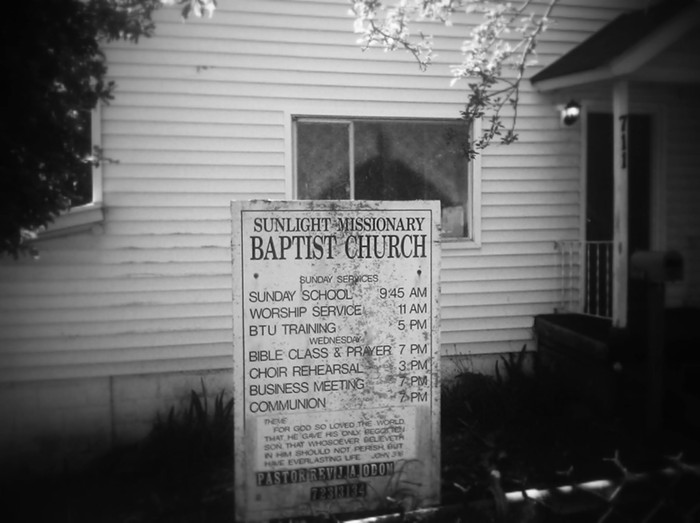
On June 4, Danny Westneat’s Seattle Times column “In Seattle, is it now taboo to be friends with a Republican?” denounces me for supposedly declaring that I don’t have any Republican friends. In fact, the article mischaracterized and misquoted my comments. I sent a short reply clarifying my position to the Seattle Times and asked them to print it, but they did not. Instead Westneat published a follow-up column briefly acknowledging that I did not say, “I do not have any Republican friends” but rather “I do not have any Republican politician friends.”
Both articles bemoan how politically polarized our country has become and how people with different views are not engaging in genuine dialogue with one another. While this is certainly true, Westneat largely misses the point. This political polarization doesn’t come from nowhere; it is largely the result of unprecedented levels of social inequality. For example, the five richest men in the world have acquired as much wealth as the poorest half of the world’s population. Two of those men live in the Seattle area, Bill Gates and Jeff Bezos. Meanwhile, Seattle faces an affordable housing crisis and its homeless population has been dramatically increasing. It is this grotesque inequality that is fueling the political polarization. When working people increasingly cannot afford basic necessities, and Republican politicians are slashing funding for our health care while cutting taxes for the super-rich, of course, there is going to be anger at Republican politicians, and rightfully so.
Westneat’s articles also fail to appreciate the huge gap between ordinary Republican voters and Republican elite politicians. A section of working people vote Republican simply because they feel there is no better choice, but that does not mean they agree with everything Republican politicians do. For example, many of the working-class people voted for Trump as a candidate did so because he promised not to cut Medicaid and to bring back decent-paying jobs. Now President Trump and Republican politicians are trying to throw millions of Americans off of Medicaid while slashing taxes for the super-rich, while he has failed to create the promised jobs.
The Republican Party’s broken promises open up opportunities to win over Republican voters to a different set of politics. Unfortunately, Democrats often fail to take advantage of these openings because the establishment liberals who control the Democratic Party are not willing or capable of addressing the needs of ordinary working people. Democratic politicians pay lip service to the needs of workers, oppressed groups, and the environment, but their actual policies ultimately serve their corporate masters, albeit not as brazenly as the Republicans. Establishment Democrats like Hillary Clinton have difficulty gaining popular support precisely because they are unwilling to challenge their big-business backers, as shown by Clinton’s unwillingness to support Medicare for All or to champion a $15 minimum wage.
Right here in Washington State, liberal establishment Democrats in our state capitol and in Seattle City Hall have continually imposed one regressive tax after another on hard-working men and women — including sales taxes, property taxes, and car tab fee increases. Now Washington state has the dubious distinction of having the most regressive tax system in the entire country! The top 1 percent in our state pay only 2 percent of their income in taxes whereas the poor pay 17 percent. This is precisely because Washington state has been run by Democrats for decades. This unfair tax burden plays into the hands of right-wing populists like Tim Eyman and Republican politicians who cynically pose as defenders of overtaxed working families.
The best way to develop a genuine dialogue with ordinary Republican voters and unite the largest number of average Americans is by building a movement that appeals to their common interests as working people. To fund the education and healthcare programs we need, we need to be willing to stand up and tax Boeing, Microsoft, and the millionaires. Instead, when Democrats controlled the Governor’s seat, the Senate, and House, they handed Boeing massive tax breaks, $3.2 billion in 2003 and $8.7 billion in 2012—the two largest tax breaks for big business in U.S. history! The Democrats’ corporate handouts and excessive taxes on working people have only served to push some working people, especially in Eastern Washington, to vote for the the Republican Party, or simply not vote at all.
In contrast, Bernie Sanders inspired an enormous amount of popular support last year when he advocated bold socialist demands that appealed to working people including a $15 minimum wage, tuition-free college, a “Medicare for All” single-payer system, investment in green jobs not jails, equal pay for equal work, and equal rights for immigrants and LGBT people. Bernie’s rallies were larger than all other presidential candidates combined. Now he is the most popular politician in the country, in part because he made clear he wanted to fund these programs by taxing corporations and billionaires, not working families and the middle class.
Bernie’s campaign inspired tremendous enthusiasm from working people and young people not only in traditional “blue” Democratic states on the coasts but also traditionally “red” states. Even among Republican voters, Bernie’s approval ratings are higher than any other Democrat.
In this age of growing inequality and popular discontent, support for working-class and socialist politics is on the rise. A bold anti-corporate, working-class agenda is far more capable of connecting with working-class Republican voters than corporate Democratic politics. Establishment liberalism is simply too compromised by its ties to big business.
Kshama Sawant is a member of Socialist Alternative and the Seattle City Council. This post has been updated to reflect that five men own nearly as much wealth as half the population.














